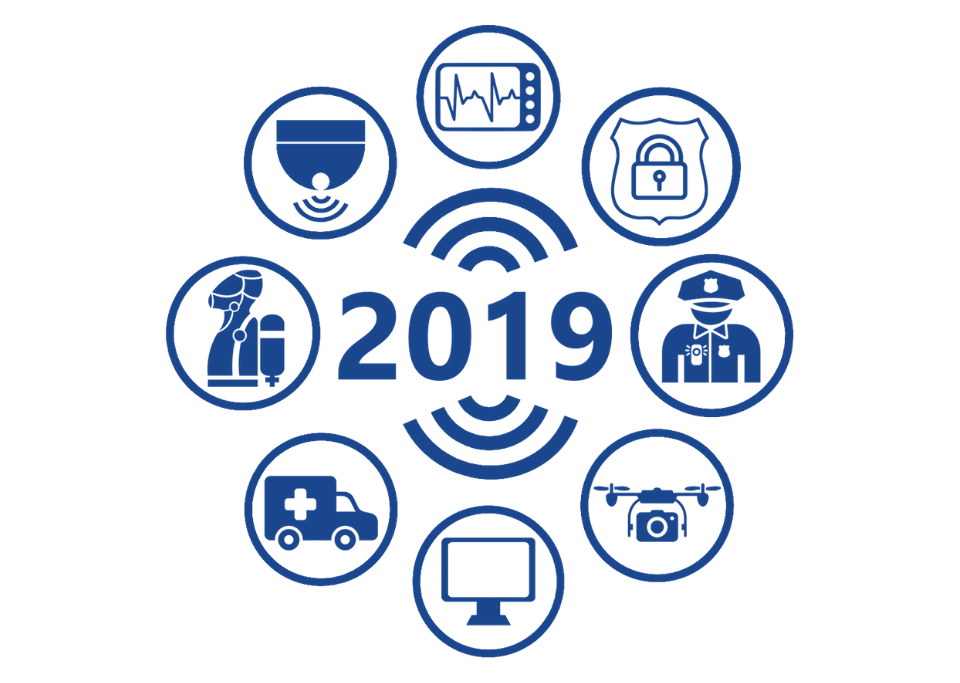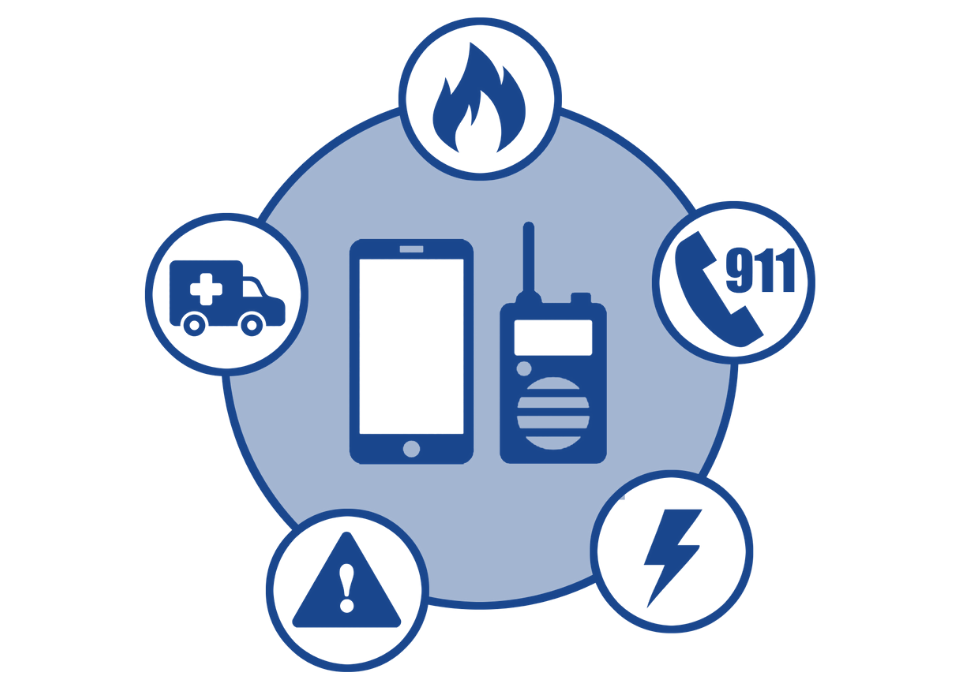
Cad On Smartwatches Is A Game Changer For Police Communications
January 8, 2021
2019 Public Safety Communications Technology Forecast
January 8, 2021Momentum continues for public safety broadband around the world. The BroadWay Project recently held a webinar and information day to update industry on its procurement plans for a public safety broadband network. The pan-European project encompasses 11 countries, representing ~1.4 million first responders, that together will procure a mobile broadband system for Public Protection and Disaster Relief (PPDR).
The Project has received €7.6M of initial funding from the European Union’s Horizon 2020 research and innovation program to complete the first three phases, setting up full scale deployment for 2022. This continued momentum for public safety broadband networks around the world means increased economies of scale for devices, platforms and services purpose-built for public safety to communicate, share and access information across jurisdictions.
The lead operator is ASTRID of Belgium, with PSC Europe serving as the Project Manager. There is a Technical Validation Committee (TVC) made up of representative agencies from Spain, Estonia, Finland, Romania, Greece, France, Czech Republic, Ireland, Italy, Netherlands. Additionally, there is a Practitioner Evaluation Team (PEVT) chaired by the Bavarian Red Cross of Germany.
In 2018, the BroadWay Project held robust open market consultation with industry and first responders resulting in seven guiding use case scenarios and 11 objectives to achieve with the procurement (see below). Significant lessons learned from the Unites States’ FirstNet strategy were leveraged in this effort. Robust industry and public safety consultations were a hallmark of the FirstNet effort as well the use of objectives over requirements in the procurement process. On February 19, 2019 the BroadWay team launched the Request for Tender to procure the Pan-European interoperable broadband system for public safety, and responses are due June 3, 2019. In addition to the recent webinar, BroadWay hosted an in-person information day in Brussels on March 26, 2019. Vendors gave five minute pitches at the information day event to entice teaming arrangements.
The Project will be deployed in four phases. The first three phases consist of Pre-Commercial Procurement (PCP). Phase One will award up to five parties €368,000 to design the solution from July to December 2019. Phase Two will down-select to a maximum of three parties and award €4.2M to deploy a prototype solution from April 2020 to March 2021. Phase Three will again down-select to a maximum of two parties and award €3M to develop a pilot and test the network from April 2021 to February 2022.
- Pan-European Architecture: Every Tender must include at least 1 mobile and/or satellite network operator using 3GPP standards for mobile broadband networks, to include mission critical broadband services.
- Availability: 99.999% availability with Quality of Service (QoS) and experience levels, sufficient capacity for mission critical applications, and airborne communications.
- Security Architecture: Fundamentally, the solution should prevent disclosure to or modification by unauthorized users, while enabling authorized users access to information when they need it with end-to-end encryption, security policies, authentication features and user/group management.
- SpiceNet Governance: Legal roaming framework across countries, authorized administrator roles, dynamic user and application priority levels, user logs, provisioning policies, and billing.
- Operational Mobility: Seamless communications groups, access to information, and the ability of devices to detect and connect to the best network in a given location.
- Standardized Solutions: Network, devices and services shall be based on open a common standards, including 3GPP MCX release 15, indoor and outdoor location detection, and information exchange.
- Application Ecosystem: An open application development platform with open APIs and data formats, with MCPTT and MC video applications using standardized CODECs. Applications will be certified by the TVC for operational use.
- Device Ecosystem: Devices to include an operating system to deploy applications, be user friendly, contain programmable buttons, simple talk group arrangement, MDM, and ruggedized with 16+ hour battery life. Open APIs/SDKs for mission critical application development.
- Innovation Ecosystem: Needs to support future 3GPP release and incorporate a testing facility.
- Technical Validation: All Tenders must be able to prove that they can deliver and sustain their proposals in a rigorous test and evaluation process.
- Practitioner Evaluation and Acceptance: PEVT will evaluate the pilot and report to the TVC, paying specific attention to mission critical services, location-based services, and database queries across different countries.
We look forward to observing the progress on this large-scale and robust initiative, and we will provide updates on the developments throughout 2019.




